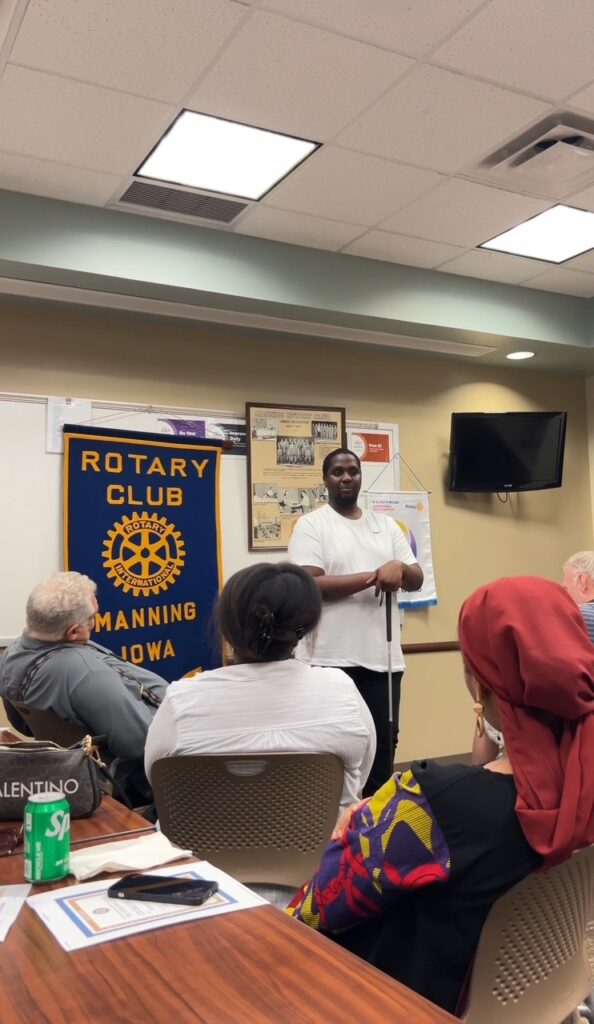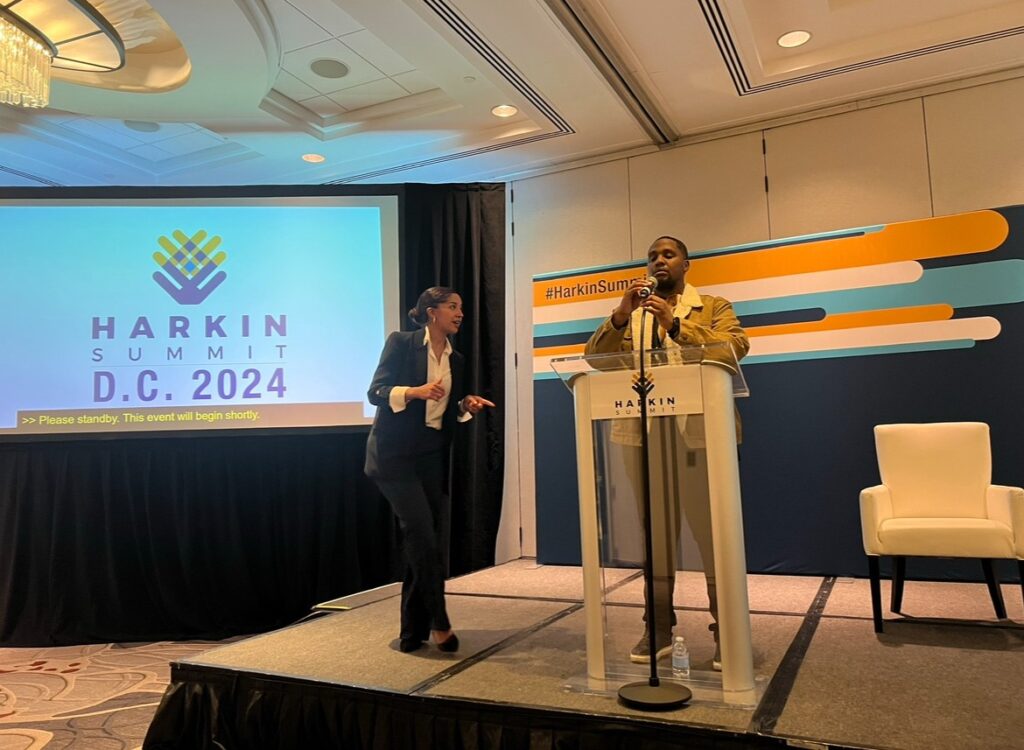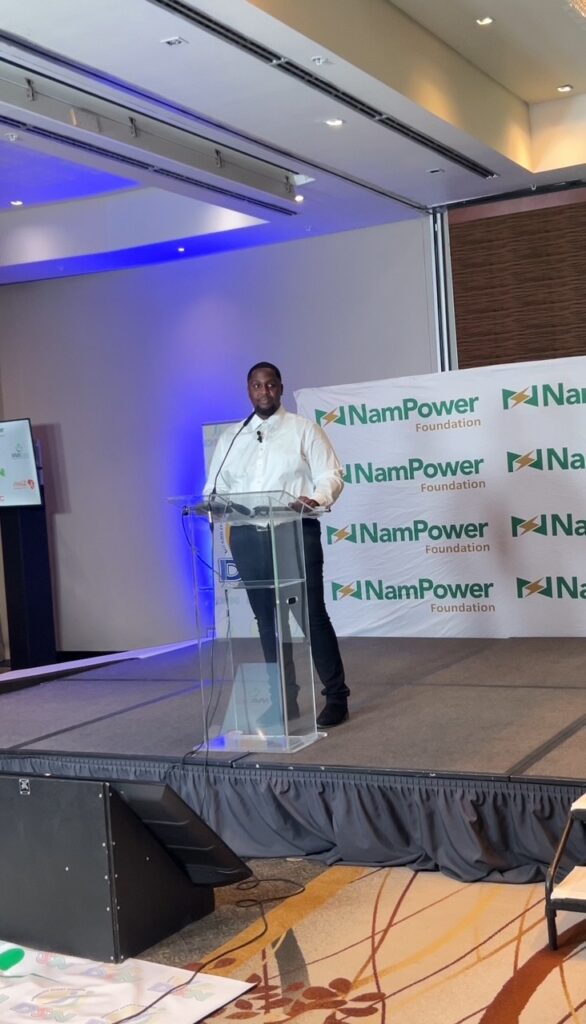Meet Simalumba: On Turning Blindness into Vision
inableAdmin
Simalumba Nawa’s life was once set on a completely different trajectory. With a strong academic background in computer science, he envisioned a future deeply rooted in the tech industry. But life had other plans. A few years ago, a life-changing accident left him blind, forcing him to reimagine his purpose.
“Ironically, losing my sight opened my eyes to the pressing need for inclusive narratives in society and the workplace,” he recalls.
However, the transition to life with blindness came with profound challenges—accessibility barriers, societal misconceptions, and the internal battle of self-acceptance. But instead of seeing these obstacles as insurmountable, Nawa embraced a mindset of growth. With unwavering faith, the support of his family, partner, and the birth of their son, he found the strength to move forward.

“I don’t necessarily believe in overcoming challenges,” he explains. “We learn to navigate them, manage them, and adapt through lifelong learning, a willingness to be receptive to new ideas, and embracing opportunities—including assistive technologies.”
Determined to turn his experiences into something meaningful, Nawa immersed himself in storytelling and communication training. Joining Toastmasters allowed him to refine his ability to articulate his journey and inspire others. With the mentorship and guidance of coaches and sponsors—his “village,” as he calls them—he developed the tools and strategies needed to not only advocate for himself but also empower others to share their stories and challenge the status quo.
Realizing the power of storytelling in shaping perceptions, Nawa founded The Blindspot Communication and Consultants—an organization dedicated to transforming the way disability is perceived in the workplace and beyond. Through public speaking, training, and strategic consulting, the company helps businesses embrace diversity and inclusion as essential components of success.
“Our work is about reimagining disability as a competitive advantage,” Nawa says. “We’ve developed training modules that integrate disability inclusion into business strategies, showing that inclusive practices drive innovation and improve workplace culture.”
His organization has worked with entities like the Namibian Paralympic Committee, NamPower, and the Internet Society Namibia Chapter. One of his proudest moments came when he spoke at the 2024 Harkin International Disability Employment Summit in Washington, D.C., where he presented on how African governments can get disability employment right.

At the heart of Nawa’s advocacy is the belief that storytelling is a powerful tool for change. One of the most impactful moments in his career came from a women-in-leadership workshop he facilitated for the Namibian Paralympic Committee.
“Many of the participants had internalized societal limitations about their capabilities,” he recalls. “Through interactive sessions and storytelling exercises, they began to see their unique experiences as assets rather than obstacles.”
As a professional speaker and coach, Nawa takes a strengths-based approach to communication training. He believes that storytelling is deeply personal and should be tailored to an individual’s values, beliefs, and strengths.
Through practical exercises, he helps professionals, students, and executives structure their narratives, infuse them with authenticity, and tailor them to different professional settings. His goal is simple: to help others harness their unique stories to inspire change and create lasting impact.

A Global Perspective on Disability Inclusion
Nawa’s impact extends beyond Namibia. As a Mandela Washington Fellow, he has gained valuable insights into global best practices in entrepreneurship, leadership, and assistive technology.
“The fellowship at Drake University and my time at Austin Lighthouse for the Blind were transformative,” he says. “It deepened my understanding of disability inclusion at an international level and reinforced my commitment to driving change.”
By collaborating with organizations like the Harkin Institute and Austin Lighthouse for the Blind, Nawa continues to expand his advocacy efforts, demonstrating that disability inclusion is not just a moral imperative but a strategic asset for businesses and society.
True inclusion, Nawa believes, starts at the top. Leaders play a crucial role in shaping workplace culture and must take active steps to integrate disability inclusion into their organizations.
“By promoting equitable career advancement and ensuring diverse voices are heard, businesses not only foster an inclusive work environment but also position themselves as forward-thinking competitors in the modern business landscape.”
A Message to Future disability Advocates
To young people with disabilities aspiring to become advocates or entrepreneurs, Nawa has one key piece of advice: believe in the power of your story.
“Your lived experiences, insights, and resilience are invaluable assets,” he says. “Embrace every challenge as an opportunity to learn and grow. Seek out mentors, coaches, and a supportive community—you cannot do this work alone.”
For Simalumba Nawa, losing his sight did not mean losing his vision. Instead, it gave him a new purpose—one that empowers others to challenge perceptions, embrace diversity, and create a world where everyone has the opportunity to thrive.
Written by Lily Ronoh-Waweru, Storytelling and Communications Consultant